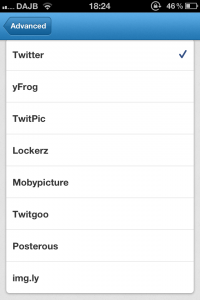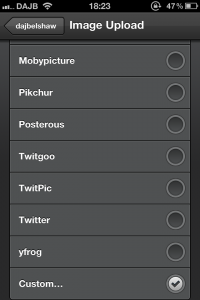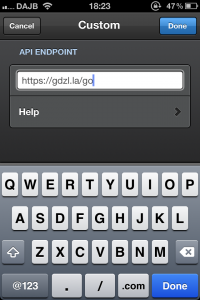3 principles for a more Open approach.
This exchange on Google+ with Rob Poulter (referencing my previous post on platforms and standards) got me thinking. The highlights are below.
Rob:
Ultimately I don’t think the problem is between native vs web, the problem is one of closed vs open, and not in a Google PR way. The things we tend to care about in the online world are services, not apps. Services see us passing responsibility for our data on to a third party, and usually based on features rather than interoperability or longevity. At the end of the day, if there’s something which we would mind losing, it’s our responsibility to keep it, not some third party.
Doug:
My issue, I suppose is platforms becoming de facto standards because ‘everyone uses them’. Kind of like Dropbox and Twitter and so on…
There’s definitely an elision which I need to resolve in my thinking between ‘HTML5 webapps’ and ‘openness’. Thanks for the pointers!
Rob:
The standards thing is tough I guess. Who wants to be the business that boasts of how easy it is to jump ship? Especially for social applications like Twitter, Facebook, G+ etc (Dropbox and other personal services not so much since they tend to compete on features and can’t rely on “hey, all your friends are here, you’re not going anywhere”).
I pointed out that Google Takeout actually does allow you to export your data from Google to other platforms. But, as Rob responded, not the comments on other people’s posts.
All of this made me think about my principles for using software and web services. It reminded me of Baltasar Gracian’s constant reminders in The Art of Worldly Wisdom (which I read on constant repeat) that it’s easy to begin well, but it’s the ending well that counts.
So, I’ve come up three principles to guide me:
- I will use
free andOpen Source software wherever possible. (I’m after the sustainable part of OSS, not the ‘free’ part) - If this is not possible then I will look for services which have a paid-for ‘full-fat’ offering.
- I will only use proprietary services and platforms without a paid-for option if not doing so would have a significant effect on my ability to connect with other people.
What’s in and what’s out? I’ll stick with Twitter and Google+ (but will try to connect with people I follow in additional ways). Evernote, Spotify, Skype and Dropbox are fine for the time being (I pay for them). I’ll try and move away from GMail and Google Calendar.
Any suggestions for replacements?
![]()




